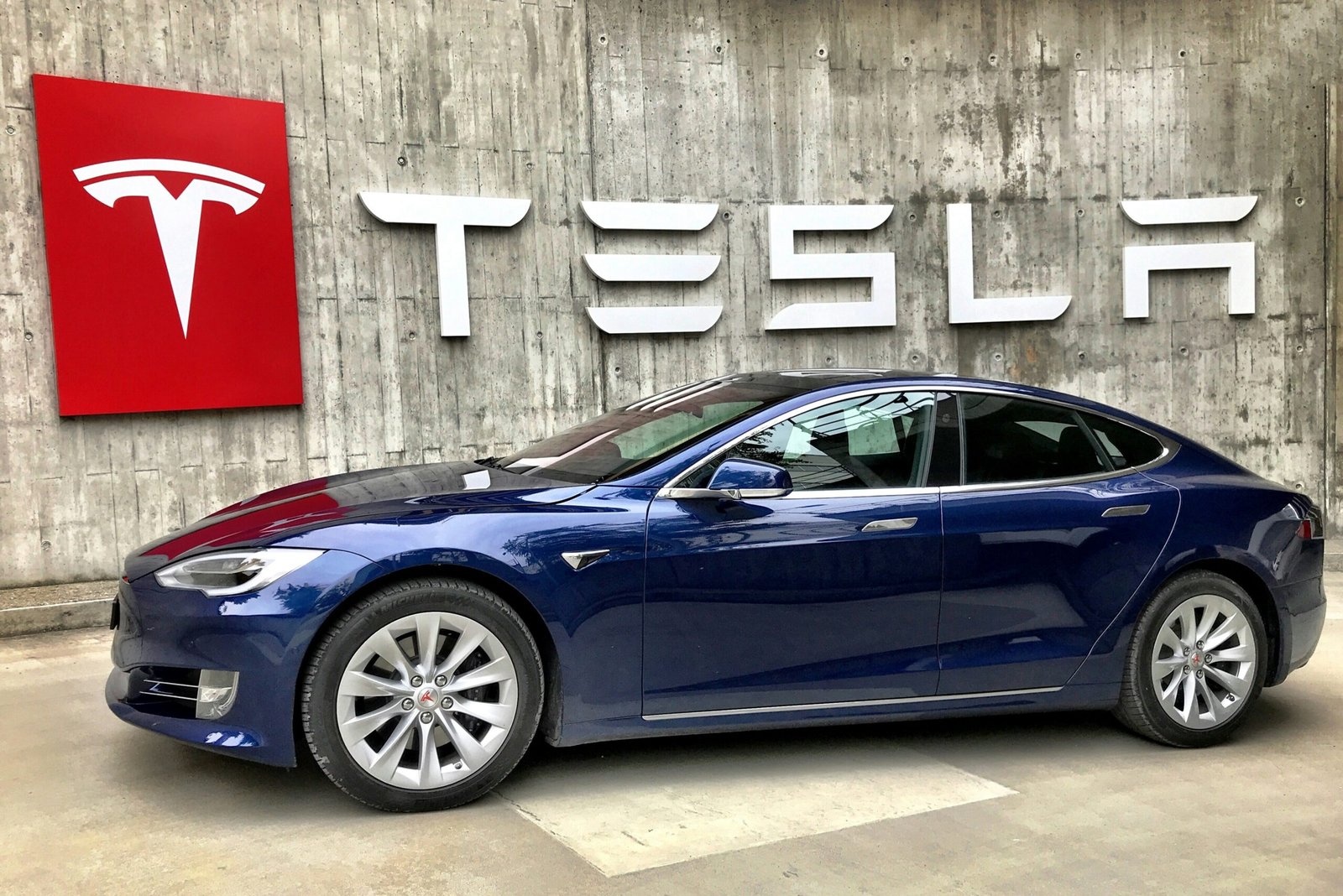
Introduction to Elon Musk’s Wealth
Elon Musk is a name synonymous with innovation and technological advancement. As the CEO and founder of multiple groundbreaking companies, he has cemented his position as one of the most influential and wealthiest individuals globally. Musk’s entrepreneurial journey began with the co-founding of Zip2, a software company, which was later sold to Compaq for nearly $300 million. This initial success paved the way for his subsequent ventures, each contributing significantly to his burgeoning wealth.
Musk’s most notable enterprises include Tesla, SpaceX, Neuralink, and The Boring Company. Tesla, the electric vehicle manufacturer, has revolutionized the automotive industry with its focus on sustainability and cutting-edge technology. As the CEO and largest shareholder, Musk’s net worth has seen substantial growth, particularly due to the soaring value of Tesla’s stock.
SpaceX, another cornerstone of Musk’s empire, aims to make space travel more accessible and affordable. The company’s achievements, such as the successful launch and deployment of reusable rockets, have not only garnered significant attention but have also attracted substantial investment. Musk’s vision of colonizing Mars underscores his commitment to pushing the boundaries of what is possible.
Neuralink, a neurotechnology company, focuses on developing advanced brain-machine interface technology. Although still in its nascent stages, Neuralink promises to revolutionize the medical field by providing solutions for neurological disorders and enhancing human cognitive capabilities. Similarly, The Boring Company seeks to alleviate urban traffic congestion through the construction of underground transportation tunnels, adding another layer to Musk’s diverse portfolio.
The accumulation of Elon Musk’s wealth can be largely attributed to his substantial ownership stakes and stock options in these companies. His approach to compensation, often tied to the performance and valuation of his ventures, has resulted in exponential increases in his net worth. As of now, Elon Musk stands as one of the richest individuals on the planet, with his wealth continually influenced by the successes and market valuations of his enterprises.
Breaking Down Musk’s Net Worth
Elon Musk, the CEO of Tesla and SpaceX, is often cited as one of the wealthiest individuals in the world. As of 2023, various financial sources estimate his net worth to be in the vicinity of $200 billion. It is important to note, however, that Musk’s net worth is highly volatile and fluctuates significantly based on the stock performance of the companies he is associated with, primarily Tesla, Inc.
Musk’s wealth is largely tied to his holdings in Tesla, where he owns approximately 17% of the company’s outstanding shares. Given Tesla’s status as a publicly traded company, the value of these shares can vary widely. For instance, when Tesla’s stock price experiences a surge due to favorable quarterly earnings or market conditions, Musk’s net worth can increase by billions of dollars in a single day. Conversely, if the stock price drops, so does his net worth.
In addition to Tesla, Musk has substantial interests in other ventures such as SpaceX, Neuralink, and The Boring Company. SpaceX, in particular, has been a significant contributor to his wealth. Although SpaceX is not publicly traded, it has received considerable valuations in private funding rounds, thereby adding to Musk’s overall net worth.
Recent estimates from Bloomberg and Forbes underscore the erratic nature of Musk’s wealth. For example, in 2021, Musk’s net worth experienced substantial swings, ranging from $151 billion to over $300 billion, largely influenced by Tesla’s stock trajectory and SpaceX’s valuation. This extreme volatility is not uncommon in Musk’s financial profile and serves as a vivid illustration of how his fortune can expand or contract rapidly.
Therefore, while Elon Musk’s net worth is frequently reported in astronomical figures, it is crucial to understand that these numbers are highly susceptible to market conditions and the financial performance of his companies. This dynamic nature is what makes estimating his hourly earnings a complex and often speculative endeavor.
Calculating Annual Earnings
To understand how much Elon Musk makes on an hourly basis, it’s essential first to delve into his annual earnings. Elon Musk’s pay structure is unique and differs significantly from traditional compensation packages. His income is primarily derived from his roles at companies like Tesla and SpaceX, supplemented by stock options and performance bonuses.
Elon Musk famously takes a minimal salary from Tesla, reportedly around $23,760 annually. However, the bulk of his income comes from stock options and performance-based bonuses. In 2018, Tesla’s board approved a compensation plan for Musk that includes no guaranteed salary. Instead, he receives stock options that vest only if the company meets specific performance milestones, such as market capitalization and operational targets.
According to Tesla’s financial reports, Musk’s compensation plan is divided into 12 tranches. Each tranche grants Musk the option to purchase a set number of Tesla shares at a predetermined price. As Tesla’s market capitalization has soared, Musk has unlocked several of these tranches, which has significantly increased his potential earnings. For instance, in 2020 alone, Musk unlocked four tranches, each valued at approximately $700 million. This means that in 2020, Musk’s compensation from stock options could be estimated at around $2.8 billion.
Moreover, Musk’s financial interests are not limited to Tesla. He is also the CEO and lead designer at SpaceX, a private aerospace manufacturer and space transportation company. SpaceX, being a private company, does not disclose the details of Musk’s compensation. However, it is widely known that he holds a substantial equity stake in SpaceX, which contributes to his overall net worth.
Combining his reported minimal salary, the value of his unlocked stock options, and potential earnings from other ventures, it is evident that Musk’s annual earnings are substantial. These figures play a significant role in understanding his hourly pay, as dividing his annual earnings by the number of hours in a year provides a clearer picture of his financial standing.
Monthly and Weekly Earnings
Elon Musk’s earnings are a topic of much fascination, given his status as one of the richest individuals globally. To break down his income, we start with his annual earnings, which are derived from multiple sources, including his roles at Tesla, SpaceX, and other ventures. Musk’s annual earnings are estimated to be in the billions, driven largely by stock options and performance-based incentives rather than a traditional salary.
Dividing this staggering figure into more digestible portions, Musk’s monthly earnings can be calculated. Assuming an annual income of $10 billion, a rough estimate puts his monthly earnings at approximately $833 million. This breakdown provides a clearer picture of the scale of his income, although the actual monthly figures can fluctuate based on the valuation of his stock holdings and the performance of his companies.
Further, breaking it down into weekly earnings, Musk brings in roughly $192 million per week. This immense figure underscores the magnitude of his financial success, driven by his strategic investments and leadership in high-growth industries. His wealth is not solely dependent on a fixed salary; rather, it is significantly influenced by the stock market performance and dividends from his investments in various ventures.
In addition to his primary roles, Musk’s income is supplemented by other investments and ventures. For instance, he has stakes in companies like Neuralink and The Boring Company, which contribute additional revenue streams. Dividends from these investments, although not always publicized, add another layer to his already complex financial portfolio.
Analyzing Musk’s earnings distribution throughout the year, it is evident that his income is not uniform. Peaks and troughs can occur based on quarterly financial results, stock option exercises, and market dynamics. This variability reflects the volatile nature of his income sources, yet consistently aligns with his overall financial growth trajectory.
Hourly Earnings: A Deeper Analysis
To comprehend Elon Musk’s hourly earnings, one must first dissect his annual income into smaller time units. In 2022, Musk’s earnings were estimated to be around $253 billion, considering his various sources of income, including Tesla, SpaceX, and other ventures. For the purpose of this analysis, we will assume a standard working year consists of 2,080 hours, which is based on a typical 40-hour workweek over 52 weeks.
Breaking down this monumental annual income, we can calculate Musk’s hourly earnings. Dividing $253 billion by 2,080 hours results in an astonishing $121,634,615 per hour. This figure, while impressive, must be contextualized within the broader scope of typical earnings. For instance, the median hourly wage in the United States was approximately $20.17 in 2022, according to the Bureau of Labor Statistics. This stark contrast highlights the vast disparity between Musk’s earnings and those of an average worker.
The methodology used in this calculation relies on several assumptions. First, it assumes Musk works a typical 40-hour workweek, which may not accurately reflect the actual hours he dedicates to his numerous business ventures. Additionally, the calculation presumes that all his earnings are evenly distributed throughout the year, a simplification that may not capture the complexities of his income streams, which can include stock options, bonuses, and other non-salaried forms of compensation.
By juxtaposing Musk’s hourly pay with that of an average worker, we gain a clearer understanding of the scale of his earnings. While the average worker’s hourly wage barely scratches the surface of Musk’s immense wealth, this comparison underscores the unique financial standing of one of the world’s most influential entrepreneurs. The methodology, despite its assumptions, offers a compelling snapshot of the financial magnitude associated with Elon Musk’s professional endeavors.
Factors Influencing Musk’s Income
Elon Musk’s income is influenced by a plethora of factors, both internal to his businesses and external in the broader economic landscape. Primarily, the performance of his companies, such as Tesla and SpaceX, plays a significant role. When these companies perform well, their stock prices often rise, directly impacting Musk’s net worth and income, considering his substantial equity stakes in these enterprises. Strategic decisions, such as product launches, mergers, and acquisitions, also significantly affect company valuation and, consequently, Musk’s earnings.
Stock market conditions are another critical factor. The volatility of the stock market can lead to significant fluctuations in the value of Musk’s holdings. For instance, an unexpected market downturn or a bearish trend can erode a considerable portion of his wealth, while a bull market can amplify his earnings. External factors, such as global economic conditions, also play a pivotal role. Economic stability and growth can foster better business environments, leading to higher company revenues and, thus, increased income for Musk. Conversely, economic recessions or geopolitical tensions can negatively impact business performance and income.
Technological advancements are another crucial aspect. Innovations and advancements in technology can lead to new business opportunities and revenue streams. For example, Tesla’s breakthroughs in electric vehicle technology and SpaceX’s advancements in aerospace technology have significantly contributed to Musk’s income. On the flip side, technological disruptions or failures can pose risks and potential financial setbacks.
Lastly, regulatory changes and government policies can influence Musk’s income. Favorable policies, such as tax incentives for green energy initiatives, can benefit his companies and, by extension, his earnings. However, stringent regulations or unfavorable policy changes can pose challenges and potentially reduce income. Thus, a combination of company performance, market conditions, external economic factors, technological progress, and regulatory environment collectively shapes Elon Musk’s income.
Philanthropy and Spending
Elon Musk, known for his visionary ventures, allocates his wealth in a manner that mirrors his innovative mindset and commitment to societal advancement. A significant portion of Musk’s earnings is directed towards investments that align with his vision of a sustainable future. Through companies like SpaceX, Tesla, and Neuralink, Musk reinvests his profits into technologies aimed at revolutionizing transportation, energy, and human cognition.
Beyond his business ventures, Musk’s lifestyle is relatively modest for a billionaire. He has been known to live in a prefabricated tiny house near SpaceX’s headquarters in Texas, reflecting his minimalist approach and focus on functionality over luxury. This lifestyle choice underscores his dedication to his work and his preference for investing in transformative projects rather than extravagant personal indulgences.
Philanthropy is another critical aspect of Musk’s financial activities. He has pledged substantial sums to various causes through the Musk Foundation, which focuses on renewable energy research, human space exploration, pediatric research, and science and engineering education. Notably, Musk has committed $100 million to fund a global competition aimed at finding innovative solutions for carbon capture, demonstrating his commitment to combating climate change.
One of his major charitable contributions includes a $50 million donation to St. Jude Children’s Research Hospital, made during the Inspiration4 mission, the first all-civilian spaceflight. Additionally, Musk has donated millions to educational and environmental causes, illustrating his commitment to enhancing human potential and addressing critical global challenges.
Musk’s spending patterns reflect his personal values and strategic business approach. His investments and donations are carefully selected to foster innovation, sustainability, and the betterment of humanity. This alignment of personal and professional priorities not only amplifies his impact but also underscores the coherence between his financial decisions and his broader vision for the future.
Conclusion: The Significance of Musk’s Earnings
Throughout this blog post, we have delved into the extraordinary financial landscape surrounding Elon Musk, highlighting his impressive hourly earnings. This analysis has brought to light several critical aspects of wealth distribution and economic disparity. Musk’s ability to generate vast sums of money in such a short amount of time underscores the immense concentration of wealth that characterizes the modern economy. His earnings are not merely a reflection of personal success but also indicative of broader systemic issues within the financial world.
Elon Musk’s hourly pay serves as a stark reminder of the growing chasm between the ultra-wealthy and the average individual. While his innovative contributions to technology and space exploration are undeniably significant, the disparity in earnings raises important questions about economic equity and the distribution of resources. The figures we have discussed illustrate not just personal achievement but also the potential for vast economic influence that comes with such concentrated wealth.
Looking ahead, Musk’s earnings are likely to continue evolving, influenced by the performance of his ventures such as Tesla, SpaceX, and other emerging projects. As these companies grow and potentially disrupt various industries, the financial rewards for Musk could further escalate. However, this progression will also prompt ongoing discussions about the implications of such wealth accumulation and its impact on society at large.
In summary, understanding Elon Musk’s hourly earnings provides a lens through which we can examine the broader economic landscape. It highlights the significant wealth disparities that exist and invites us to consider the future trajectory of such financial phenomena. As we move forward, it will be crucial to balance the celebration of entrepreneurial success with a critical look at the systemic imbalances it reveals.

